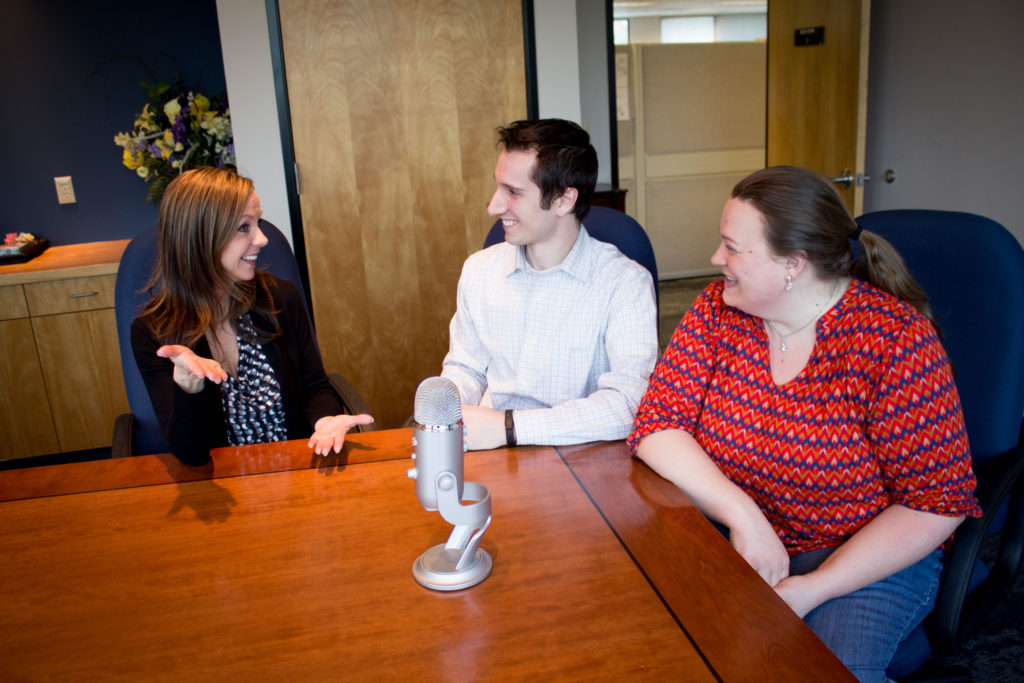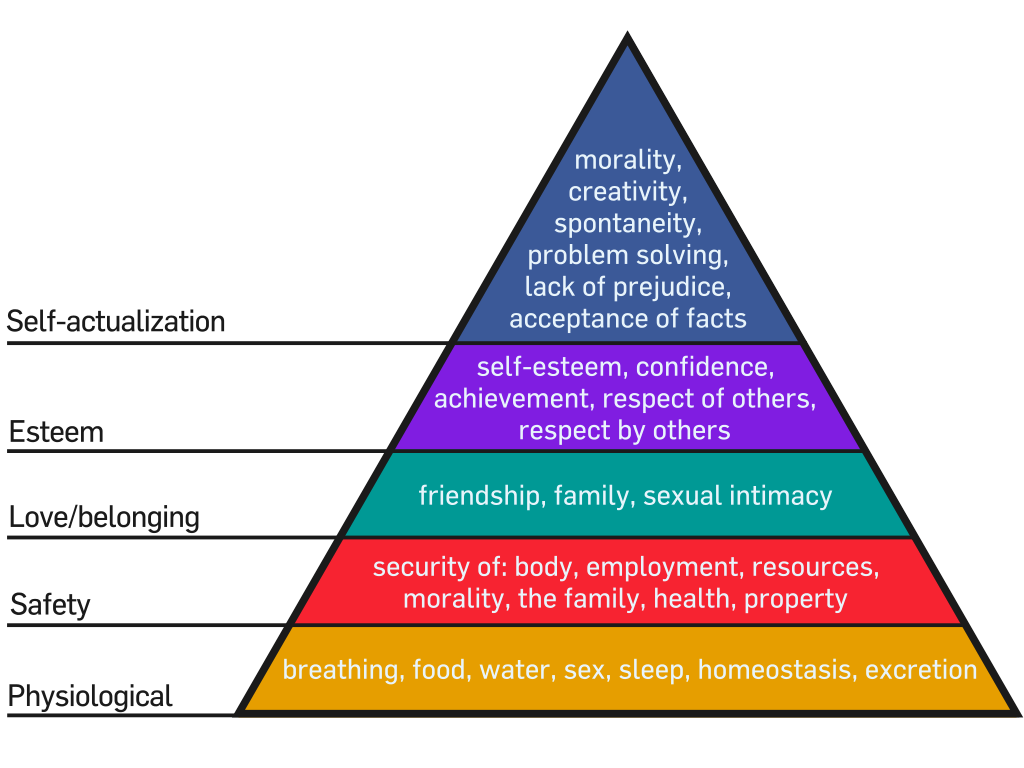Download the MP3 | Run Time: 10:31
Brandon, Suzi, and Molly discuss a New York Times article about how Dan Price, the founder of Gravity Payments, is raising his company’s minimum wage to $70,000 a year. They discuss the implications of implementing such a high minimum wage as well as speculate what will happen in the future.
Supporting Articles:
“One Company’s New Minimum Wage: $70,000 a Year” by Patricia Cohen, The New York Times
“Dan Price: How I Picked $70K As My Company’s New Minimum Wage” by Christopher B. Nelson, Forbes

Brandon: Welcome everybody! This is the It’s About People podcast. I am Brandon Laws and I’m with Molly Kelley and Suzi Alligood, the dynamic duo. Today we’re going to talk about an article that ran across my desk titled “One Company’s New Minimum Wage: $70k a Year.”
Molly: Yes! [Laughing]
Brandon: Minimum wage has been in the news quite a bit. We’re over in Portland and it’s the talk of Oregon—$15 dollar an hour minimum wage. This CEO, I think he’s based in Seattle, is Dan Price, the founder of Gravity Payments, a credit card processing company. He’s going to push the minimum wage in the next several years to $70,000.
Molly: Within his company.
Brandon: Within his company. He makes a million dollars a year as the CEO right now, he’s personally going to slash his annual salary and push it back to the employees, and take profits from the company and push it down to the employees. Do you think this can work?
Suzi: Well, what are the positions? What are the types of positions?
Brandon: It’s a regular organization, so I think there’s administrative to very strategic positions.
Suzi: Right, so the lowest level, the entry level person—
Molly: The lowest paid person will be at $70,000.
Suzi: Even if they’re just doing basic admin, or receptionist?
Brandon: Exactly! The average salary at their company, and I mean credit card processing company has pretty decent margins and high volume. Not huge margins, but high volume. They make pretty good money. The average salary is $48,000 a year, which isn’t bad.
Suzi: Currently?
Brandon: Currently, right now.
Suzi: And that’s average, not minimum.
Brandon: So going from $48,000 to $70,000, that’s average—minimum’s a totally different conversation—for 120 employees, how do they do this? Will it work?
Molly: What he’s saying, having read that same article, is that he is slashing his own salary first. So I think it’s a really interesting argument that he’s making and that those people who have gotten on board with the practice are making, that there’s a larger and larger gap between CEO income levels and the employees’.
Brandon: I think his concern was the ratio, because it’s not really published knowledge out there with all the companies.
Molly: Yeah, exactly. So he’s basically saying, I’m taking myself down from a one million dollar salary per year to a $70,000 salary, and my employees will benefit in return by having their salaries increase to a minimum of $70,000. I think it’s a really interesting social experiment. The first thing I thought was, what an amazingly interesting  company to work for. I mean, in somewhat of a drastic way, but if you’re making a statement about retention and engagement and standards of living, that couldn’t be a louder statement. I don’t know, Suz, what do you think?
company to work for. I mean, in somewhat of a drastic way, but if you’re making a statement about retention and engagement and standards of living, that couldn’t be a louder statement. I don’t know, Suz, what do you think?
Suzi: Yeah, it’s interesting. I think of the socioeconomic side of it, or the sociology side of it, right?
Brandon: Absolutely.
Suzi: Is it kind of socialistic?
Brandon: That was my initial reaction! So, the way I’m looking at this—on the surface, this is amazing, this guy is very generous, he knows how to run a company; it is about people, right? The other side of this is, okay, you have “administrative” (I’m putting air quotes), lower-skilled employees who make the least amount in the company. Now their
salaries are being pushed to 70 grand. What about the people who are making $75,000 right now as a higher position in the company? Are they now going to be pushed to $125,000 or are they still going to be making $75,000, next to the lowest level position in the company doing basic things? That’s my concern—it’s very socialistic.
Suzi: Yeah, and I don’t know if that’s the intent here, whether it’s to really level the playing field, and I’d be curious about what’s the top end. If $70,000 is the floor, what’s the top end? It’d be interesting to know. And then the other question is, okay, I mean, obviously you’d be thinking that people will be clamoring to get in, if I don’t have a college degree, let’s just say I’ve got a basic skillset and I can make $70,000, obviously there’s going to be people wanting to get in and work there, but it would be interesting to see, for the existing employees, with that big of a jump or a shift, what’s the impact on performance? What return does this guy think he’s going to get?
Brandon: That’s the question.
Suzi: It’s a huge experiment!
Brandon: And I think the experiment could be interesting, because he’s the only company, this person’s the only CEO of a company that we know of doing something like this. So I think initially, the response could be good, because maybe the top talent in each of those areas, in each of the positions throughout the company, he’ll probably find the best talent if he’s recruiting, more people will want to work for him.
Suzi: It’s a recruiting strategy. Or maybe, do you think this is just a total marketing PR campaign to get attention for his company?
Molly: If it is, it’s successful! Because this article is everywhere. Yeah, but I think about that in terms of if I was an administrative assistant fresh out of school, college, trade school, whatever, and I’m hired to work at this company and I’m hired at $70,000, I would really be challenged to go elsewhere in that first year of employment and find another job as an admin assistant working somewhere in Seattle, which is already a pretty competitive job market, making $35,000 or $40,000, if I’m lucky. I really can’t imagine anyone leaving. So did they just make themselves the single most hotly sought after employer?
Brandon: And this is over a 3-year period too, so they’re just stair-stepping it. There’s no way, the economics of it don’t make any sense if you were to do it immediately. I don’t know.
Suzi: I’m curious to whether their expectations for performance are going to be shifting, too, right?
Brandon: They’ve got to have higher standards.
Suzi: Yeah, is it going to stay the same or are they going to be challenging people more, given that they’ve got such a great earning potential opportunity?
Brandon: Here’s an interesting stat from the article—70 of the 120 people, their salaries would double.
Molly: Wow.
Brandon: How’s that for a stat? That’s a huge life shift for those people making what, $30,000, $35,000 a year all of a sudden making $70,000.
Suzi: Yeah, they won the lottery! [Laughing]
Brandon: There’s a study from a couple Princeton psychologists that said that the threshold for the amount that you need to make, they came up with $75,000. If you make $75,000, you’re a lot more happier than if you make less than that.
Suzi: Interesting.
Brandon: So this guy, Dan Price, the founder of this, he read a book based on that experiment.
Suzi: Okay, okay.
Brandon: And he’s implementing it.
Suzi: That’s where he got that number.
Brandon: He is putting this experiment to practice.
Molly: Wow.
Suzi: So when I think of compensation and people feeling a sense of fulfillment or happiness, it’s kind of like that Maslow’s hierarchy of needs. And so, yeah, there’s a threshold of compensation that people feel like they need to have just to meet their basic needs. It’d be interesting to see what that is, I’m sure it varies based on geographical area, cost of living, that stuff, but then anything beyond that, you know, you’re more focused on other more intrinsic factors and rewards to fill you up.
Brandon: That’s right.
Suzi: So $75,000, that seems pretty significant. But I guess if you’re the sole income provider, it’s not.
Molly: Yeah. I think the other part of that is that people start living up to their means. So if my salary climbs to $140,000 a year, I’m probably going to be spending more money.
Brandon: That’s very possible.
Molly: It becomes the new floor, and the ceiling rises higher.
Brandon: Which is concerning, because if this becomes a norm, let’s say this experiment goes well, other employers start adopting this.
Molly: Can they?
Brandon: Well can they, because then their competition is trying to do the same thing. Well, wages are pushed up, prices increase—it gets down to the consumers. I mean, you just have massive inflation, in my opinion.
Molly: There’s Brandon the economist running away with it! [Laughing]
Brandon: You have to worry about these things, because it comes back to us one way or another. Like, on the surface you may say that putting more money in the pocket of the workers—
Suzi: But are these people spending more? If they’re representing the middle class, then they’re spending more.
Brandon: If they’re not spending more, it probably won’t affect much.
Molly: What if you were their customer or their client? Would you be sitting there thinking, Wait a minute now. Am I going to be paying for your employees now?
Brandon: It’s also a signal that maybe there’s too much profit in the industry, and that’s actually another signal for Hey, I’m going to go start a credit card processing company! I mean, we all know there’s a lot of money in that, so it’s no surprise.
Molly: Fascinating social experiment. We’ll see how it goes!
Brandon: It is. We’ll continue to monitor it, but it is time to wrap up the It’s About People podcast. Thanks for joining us!

